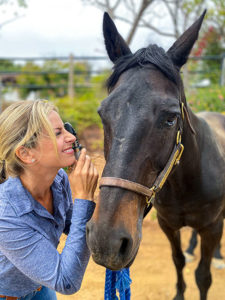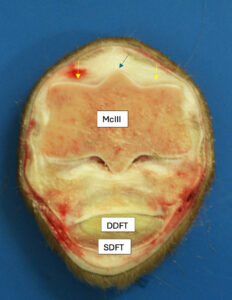Nutritional and Metabolic Concerns with Equine Forages
While many of us want to simplify nutrition for our horses, selecting the best forage for a horse isn’t always simple, particularly if he is chronically laminitic and/or metabolically challenged. Diets for these horses require particular care;
- Topics: Article, Pasture and Forages
While many of us want to simplify nutrition for our horses, selecting the best forage for a horse isn’t always simple, particularly if he is chronically laminitic and/or metabolically challenged. Diets for these horses require particular care; however, in order to optimize the diet, first you must understand the horse’s need for forages.
The first “Equine Forage: Risks and Rewards Seminar and Summit,” held Oct. 22-23 at Rutgers University, offered seminars for owners and veterinarians, open discussions, and hands-on labs. Three presenters focused on carbohydrates in forages, with an eye toward better managing hay and pasture to meet the needs of normal and problem horses.
Sarah Ralston, VMD, PhD, Dipl. ACVN, associate professor in the Department of Animal Science at Cook College, Rutgers University, began the conference by discussing the horse’s natural diet, feeding patterns, and digestive physiology.
“We all know forage is important for horses,” she began, “but until recently, we took it as a given. Many, especially here in the East, however, rely more on grain for nutrients and view hay as just something for horses to chew on. But if we could rely more on our hay and pastures, we could meet our horses’ needs more cheaply, and they would be happier, healthier animals
Create a free account with TheHorse.com to view this content.
TheHorse.com is home to thousands of free articles about horse health care. In order to access some of our exclusive free content, you must be signed into TheHorse.com.
Start your free account today!
Already have an account?
and continue reading.
Related Articles
Stay on top of the most recent Horse Health news with


















